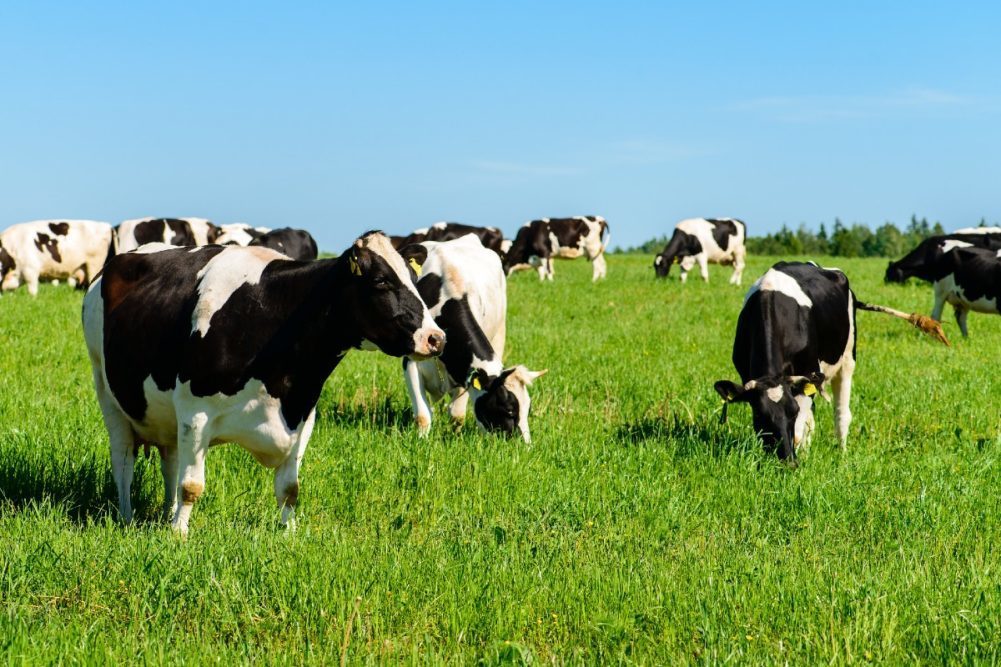WASHINGTON – The US Department of Agriculture (USDA) announced March 25 it is working with the Food and Drug Administration (FDA), Centers for Disease Control and Prevention (CDC) and state-level veterinary and public health officials after highly pathogenic avian influenza (HPAI) was detected in two dairy cattle herds in both Texas and Kansas.
Experts suspect wild migratory birds are the source of the infections.
The USDA said the findings are not accompanied by any concerns about the safety of the commercial milk supply and there is not a risk to consumer health, as dairies are required to only send milk from healthy animals to processors.
USDA’s Animal and Plant Health Inspection Service (APHIS) said that after clinical samples of unpasteurized milk were collected from two Kansas dairy farms and one in Texas – and a swab from another dairy in Texas led to the other detection – additional testing got started on March 22, because farms also reported finding deceased wild birds.
Government agencies also shared that testing conducted by National Veterinary Services Laboratories found no proof of changes in the virus that would make it more transmissible to humans.
Per USDA, roughly 10% of each dairy herd at the affected farms in Kansas and Texas appeared to be impacted by the virus.
It also noted, “Milk loss resulting from symptomatic cattle to date is too limited to have a major impact on supply and there should be no impact on the price of milk or other dairy products.”
A joint statement released by the National Milk Producers Federation (NMPF), International Dairy Foods Association (IDFA), US Dairy Export Council (USDEC) and Dairy Management Inc. (DMI) noted enhanced biosecurity protocols are being taken at US dairy farms.
“As information related to an illness affecting dairy cows in several states began to circulate over the past two weeks, USDA’s Animal and Plant Health Inspection Service worked with state veterinary authorities, as well as federal partners including the FDA, to swiftly identify and respond to detections and mitigate the virus’ impact on US dairy production,” the organizations stated.
Texas Agriculture Commissioner Sid Miller confirmed the news about dairy cows in his state and explained his office's next steps on the matter.
“This presents yet another hurdle for our agriculture sector in the Texas Panhandle,” Miller said. “Protecting Texas producers and the safety of our food supply chain is my top priority. The Texas Department of Agriculture will use every resource available to maintain the high standards of quality and safety that define Texas agriculture.”
The Texas dairy industry accounts for about $50 billion in economic activity across the state. Texas ranks fourth in milk production nationwide.
Experts say it’s important to clean and disinfect all livestock watering devices and isolate drinking water where it might be contaminated by waterfowl.
“Unlike affected poultry, I foresee there will be no need to depopulate dairy herds,” Miller said. “Cattle are expected to fully recover. The Texas Department of Agriculture is committed to providing unwavering support to our dairy industry.”
After the HPAI confirmation in the dairy cows, the Meat Institute issued a statement stating that properly prepared beef is safe to eat and does not pose a food safety risk to humans.
“The Meat Institute and its member companies will continue to be vigilant to aid in the efforts to stop the spread of the disease among animals in food production,” said Julie Anna Potts president and chief executive officer of the Meat Institute. “We will support the nation’s dairy and livestock producers as they work to protect their herds.”

